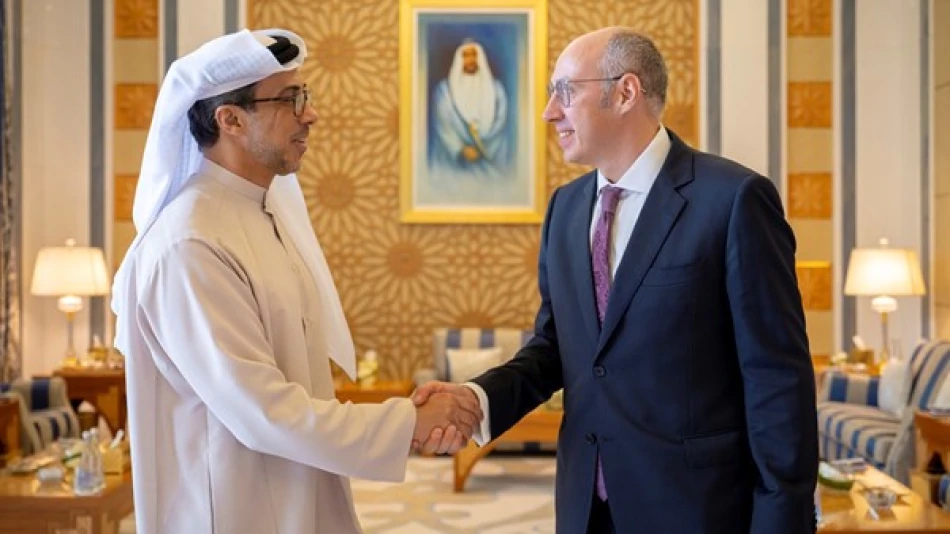
Emirati Minister Bids Farewell to Ukrainian Ambassador after Successful Tenure
UAE-Ukraine Diplomatic Ties Endure Despite Regional Turbulence
Sheikh Mansour bin Zayed Al Nahyan, UAE's Deputy Prime Minister and Presidential Court Chairman, met with outgoing Ukrainian Ambassador Dmytro Senik at the Presidential Palace, signaling the Emirates' commitment to maintaining diplomatic relations with Ukraine despite the ongoing war with Russia. The farewell meeting underscores the UAE's delicate balancing act between Western allies and its strategic partnership with Moscow.
Strategic Diplomacy in Wartime
The high-level farewell meeting comes at a critical juncture as the UAE navigates complex geopolitical waters. While maintaining strong economic ties with Russia—particularly in energy and trade—the Emirates has simultaneously positioned itself as a mediator in the Ukraine conflict and provided humanitarian aid to Ukrainian refugees.
Sheikh Mansour's personal involvement in the diplomatic farewell reflects the UAE's sophisticated approach to international relations, where maintaining open channels with all parties serves broader strategic interests. This mirrors the Emirates' historical role as a neutral hub for diplomacy and commerce in an unstable region.
Economic Implications Behind Diplomatic Courtesy
Trade Relationships Under Pressure
The UAE's bilateral trade with Ukraine, while modest compared to its Russian commerce, represents significant potential in post-war reconstruction. Ukrainian agricultural exports and the Emirates' expertise in logistics and infrastructure development could form the backbone of future economic cooperation.
For investors and multinational corporations, the UAE's maintained diplomatic presence in both Moscow and Kyiv positions it as a potential facilitator for future business dealings once hostilities cease. This diplomatic hedge could prove valuable for companies seeking to re-enter Ukrainian markets through UAE-based operations.
Regional Context and Global Positioning
Unlike European nations that have severed most ties with Russia, the UAE's approach resembles that of other Gulf states and emerging economies that prioritize economic pragmatism over ideological alignment. This strategy has allowed Dubai and Abu Dhabi to become refuges for both Russian and Ukrainian capital flight during the conflict.
The timing of this diplomatic courtesy also coincides with increased Western scrutiny of Gulf states' relationships with sanctioned Russian entities. By publicly acknowledging Ukraine's diplomatic mission, the UAE demonstrates its commitment to international diplomatic norms while avoiding taking sides in the broader conflict.
Future Implications for Middle East Diplomacy
This diplomatic engagement suggests the UAE will likely maintain its role as a neutral mediator, potentially hosting future peace negotiations or serving as a conduit for humanitarian aid. The Emirates' ability to maintain relationships with conflicting parties has historically made it an attractive venue for sensitive diplomatic discussions.
For the broader Middle East, the UAE's approach may influence how other regional powers handle similar diplomatic challenges, particularly as global conflicts increasingly force nations to choose between competing economic and security partnerships.
Most Viewed News

 Layla Al Mansoori
Layla Al Mansoori






